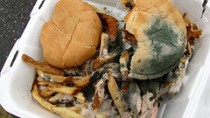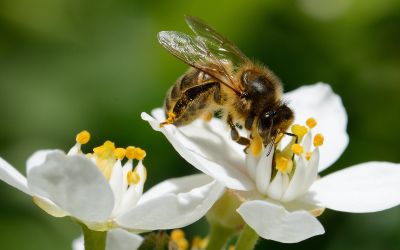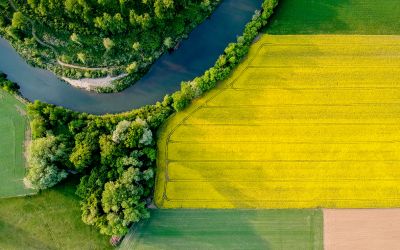Water from food waste going down the drain
Water resources are limited and will be impacted by climate change in the future. Despite this, many households in the UK waste food in large amounts, this in turn wastes the huge amount of water used to produce the food. A new report by WWF and WRAP examines the water footprint of UK household waste.

 Producing food for the 6.9 billion people on the planet requires huge water resources but large amounts of food go to waste and in turn that water goes down the drain.
Producing food for the 6.9 billion people on the planet requires huge water resources but large amounts of food go to waste and in turn that water goes down the drain.
WWF and the Waste and Resources Action Programme (WRAP) jointly published a paper outlining the water and carbon footprints of household waste in the UK today (22 March).
The report found that the water lost through food waste in the UK was, at 6.2 billion cubic metres per year, equivalent to six per cent of the entire country’s water requirements.
Liz Goodwin, chief executive of WRAP, said: “these figures are quite staggering.
“The water footprint for wasted food – 280 litres per person, per day - is nearly twice the average daily household water use of the UK, 150 litres per person per day,” she said.
This report follows on from the two organisation’s work in 2008 and 2009 that found UK households throw away 8.3 million tonnes of food and drink waste every year, of which 60 per cent was still suitable for consumption.
In terms of green house gas emissions, this waste cancels out many of the positive things people do for the environment.
According to Goodwin: “the greenhouse gas emissions associated with food waste are greater than those already saved by the total amount of household recycling that takes place in the UK.”
Water wastage is of particular concern today because water is scarce in many countries and this situation is likely to get worse due to climate change.
According to Waterwise, about 70 per cent of the UK water footprint is water that originates in other countries, often ones suffering from water stress.
Dr David Tickner, head of freshwater programmes at WWF-UK, said: “the world is facing a water resources crunch as population growth, shifting consumption patterns and climate change take effect.”
Goodwin believes this study shows how much consumers can impact on saving water by reducing food waste and this also saves them money too.
There is still, however, a role for industry in addressing this issue.
Goodwin said: “through WRAP’s work with retailers, food and drink manufacturers and local authorities, 670,000 tonnes of food waste were prevented between 2005 and 2009.”
Some companies are strongly addressing the issue such as Nestlé who claim to have reduced water consumption by 27 per cent in 2010 and aim to reduce it by a further 30 per cent by 2020.
Pascal Gréverath, Nestlé’s Assistant Vice-President for Environmental Sustainability, spoke on the topic at last week’s SDUK conference.
At the conference Gréverath also said the company hoped to improve their customer’s water consumption, ideas for this include encouraging consumers to use only the water they need when boiling a kettle to make Nestlé's instant coffee, Nescafé.
For further information:
The Water and Carbon Footprint of Household Food and Drink Waste in the UK (WRAP and WWF report)
Image: dainy32 | flickr





